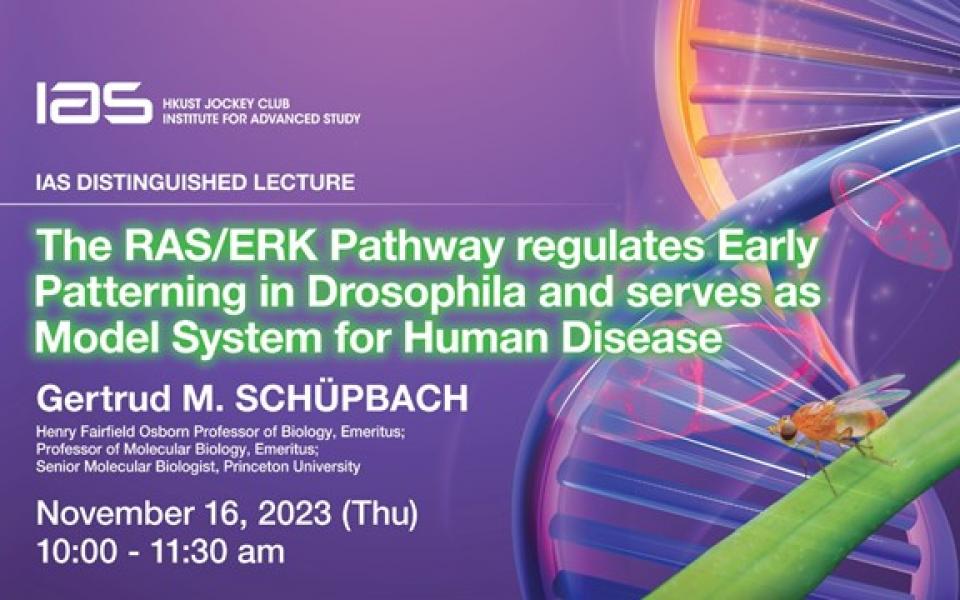IAS Distinguished Lecture - The RAS/ERK Pathway regulates Early Patterning in Drosophila and serves as Model System for Human Disease
Abstract
The EGF Receptor/RAS/ERK pathway plays a role in many steps of animal development. It is also involved in a number of disease syndromes in humans. The speaker has used Drosophila as model system to study various aspects of this versatile signaling pathway. Notably, the speaker has shown that the activation of the pathway in the ovarian follicle cells of Drosophila establishes both the anterior-posterior as well as the dorso-ventral pattern of the egg and early embryo.
More recently, the speaker and her research team have collaborated with the laboratory of Stanislav SHVARTSMAN to investigate the contributions of the pathway to a class of human syndromes called Rasopathies. Working with Drosophila has allowed them to characterize a number of disease alleles in detail. Apart from insight into disease development, the speaker and her research team have also started to understand more about the apparent stochasticity of phenotypes produced by mild gain-of function alleles.
About the Speaker
Prof. Gertrud M. SCHÜPBACH is a member of the National Academy of Sciences and of the American Academy of Arts and Sciences. She is a Howard Hughes Medical Institute Investigator, and the Henry Fairfield Osborn Professor of Biology and Professor of Molecular Biology at Princeton University. She is also an adjunct faculty member of the Department of Biochemistry and Molecular Biology at the Robert Wood Johnson Medical School at Rutgers University. Prof. Schüpbach received a Masters degree and a Ph.D. in Biology from the University of Zurich, Switzerland. She performed postdoctoral work first at the University of Zurich and later at Princeton University. She was appointed as a Research Biologist in the Department of Biology at Princeton University in 1985, and as Associate Professor in 1990 and was promoted to Full Professor in 1994. The research in her laboratory focuses on cell-to-cell signalling processes that are involved in pattern formation during development, using Drosophila as a model system. In recent years, the work has branched into questions of RNA localization and translational control, as well as understanding the general biology of epithelial cells. At Princeton, Prof. Schüpbach teaches both undergraduate and graduate courses and has guided many juniors and seniors in their thesis research.
Prof. Schüpbach was elected to the European Molecular Biology Organization in 2000, and became a fellow of the American Association for the Advancement of Science in 2007. She received the Edwin F. Conklin Medal from the Society of Developmental Biology in 2006. She was conferred a honorary Ph.D. degree from the University of Zurich, Switzerland in 2011. She served as the president of the Genetics Society of America in 2008, and as the president of the Drosophila board in 2000. She has been an associate editor of the journal Genetics for over two decades, and serves on the editorial board of PNAS, Developmental Cell and the Annual Review of Genetics. She has served on oversight, grant and award panels for the National Institute of Health, the National Science Foundation, the Keck Foundation, and the Damon Runyon Cancer Research Foundation. She has participated on advisory committees for Biology Departments at Carnegie Mellon University, Temple University, Johns Hopkins University, Ohio State University, and the European Molecular Biology Laboratory in Heidelberg, Germany. She is presently a member of the external advisory board of the Institute for Research in Biomedicine (IRB) in Barcelona, Spain.
For Attendees' Attention
Seating is on a first come, first served basis.
